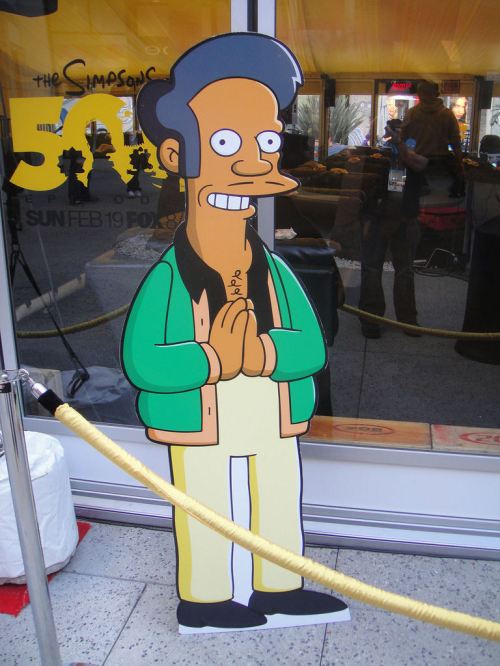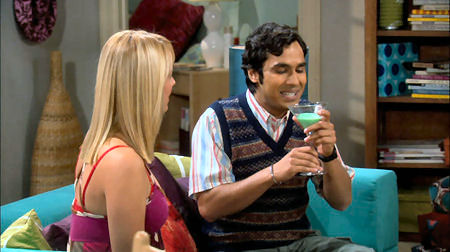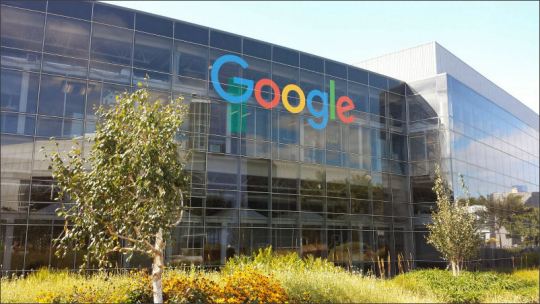Apu Nahasapeemapetilon – Don’t Go… Grow!
If you’re a regular viewer of The Simpsons, then you are undoubtedly familiar with the proprietor of the Kwik-E-Mart, Apu Nahasapeemapetilon.

Apu has been a part of The Simpsons since its first season (in 1990), making his debut appearance in an episode called The Telltale Head. Despite being animated, he is surprisingly well-rounded. Apu graduated at the top of his class at Caltech – the Calcutta Institute of Technology – and holds a Ph.D in Computer Science. His doctoral dissertation described an AI computer program that would play an unbeatable game of Tic-Tac-Toe. Apu took a job at the Kwik-E-Mart initially to help pay of his student loans. Apu’s last name, Nahasapeemapetilon, is a variation of Pahasadee Napetilon, a friend of one of The Simpsons’ writers. Apu is a vegan, an ardent cricket fan, and likes to design and build furniture. Apu is voiced by Hank Azaria.
As far as I know, everybody loves Apu. For almost 28 years, Apu has been (and still is) a beloved character in The Simpsons, but during the fall of 2017, there arose a torrent of negative articles about him. These articles stated that the character was racist, and by extension, The Simpsons itself was racist. Given the speed at which this change of heart occurred, I initially thought that we were experiencing what Malcolm Gladwell would call The Tipping Point.
In the blink of an eye, it seemed that the entire world was disgusted with Apu. There were articles in The New Yorker, Vanity Fair, GQ, Slate, The Guardian, and The Verge, to name a few. I had a difficult time grasping this sudden sanctimoniousness.
That is, until I took a closer look at these articles, and noticed a certain similarity…
Each of these sources quoted a comedian named Hari Kondabolu and mentioned his upcoming documentary, The Problem With Apu. After a while it became clear what was happening. Hari Kondabolu was using the media to promote his new film. He had something to sell, and was displaying a level of outrage and victimization that seemed well out of proportion as a response to an animated character. I suspect that he wanted to make the rest of us worked up enough to see his film. In my opinion, he was trying to create a scandal where none had existed before.
I decided to watch his movie’s trailer. Kondabolu had enlisted some of his Indian friends to join him in his outrage, so it would appear that he wasn’t alone in his ranting. When he started to say that he liked The Simpsons, his friend (whose hatred for Apu was so all-consuming that it made him despise the entire series) wouldn’t let Hari finish his thought. He interrupted Hari, and them proceeded to insert words into his mouth “[Because] you hate yourself“.
This was manufactured outrage, and I wasn’t buying it for a second. Judging by the vast majority of the people commenting on this YouTube video, neither was anyone else. In fact, the commenters made a number of good points:
- Everyone gets lampooned in The Simpsons. That’s the point of the show.
- Groundskeeper Willie is portrayed much more negatively as an ornery Scotsman. Mr. Burns possesses all of the negative qualities of an evil capitalist.
- Are Americans actually blaming an animated character for what they perceive as limited opportunities in their lives?
- I don’t care if he’s voiced by a non-Indian actor. That doesn’t bother me in the slightest.
- Apu has been treated well by the show’s writers. He owns his own business, he married a nice woman and they are raising a family together. He’s a hard worker, he respects his culture and he is generally happy.
If Shakespeare were alive, he would have summarized this issue thusly: “Full of sound and fury, signifying nothing“, or perhaps as one commenter put it “Much Apu about nothing“.
At this point, I was ready to dismiss the whole thing as the bombastic histrionics of one individual, done in order to promote his documentary… except for two things:
- Hank Azaria responded to these articles and comments on the speculation that Apu may no longer be part of The Simpsons.
- Kondabolu does make a good point. After almost 28 years, Apu’s character hasn’t changed much. While he did get married, have children and now appears to own the Kwik-E-Mart, his character has remained essentially static.
During this time, the disparity between the television portrayal of Apu, and reality for South Asians living in North America, was growing. The cultural makeup of our society has changed, along with our perception and acceptance of immigrants. Indian actors are appearing in more American television shows and are portraying people in prestigious professions: Mindy Kaling is a doctor in The Mindy Project; Kunal Nayyar plays an astrophysicist in The Big Bang Theory; Paull Walia has starred as a doctor in several television series, including Grey’s Anatomy, General Hospital and The Young & The Restless.
Kondabolu is reminding us that, even as an animated caricature, Apu no longer represents South Asians in North America. What’s going to happen to Apu? In one article, the interviewer asks Hari Kondabolu about rumours that Apu’s character will be killed off, He replies “I’d feel mixed about it… There’s more creative solutions, but it’s easier to kill off the character than change.“
But does this mean that Apu should be kicked to the proverbial curb? Only if you believe that animated characters must remain static forever and are incapable of developing. Killing Apu’s character, or otherwise writing him out of the show, is nothing more than an emotional response and a myopic knee-jerk reaction. There are better ways to handle this situation. One that I’d like to propose is allowing Apu to grow and develop. Apu’s character shouldn’t be as flat as his two-dimensional animation.

Character growth has already been demonstrated in a recent television series, and in my opinion quite effectively. During the first season of The Big Bang Theory, Raj Koothrappali suffered from selective mutism – he wasn’t able to speak in the presence of women who weren’t related to him. Personally, I thought this running joke was getting old quickly, and I suspect that the BBT show’s writers did as well, since they created a loophole for him during the eighth episode of the first season: he could speak to women, but only after consuming alcohol. Soon, Raj almost always had a drink in his hand. By the sixth season, Raj’s selective mutism was purged entirely after his girlfriend, Lucy, broke up with him. Raj’s character evolved considerably since the series started. The Simpsons is now in its 29th season.
My vision is the development of Apu during a season-long story arc. I feel that this is the most realistic way to go about it, since no one is going to buy a sudden awakening or a life-changing epiphany. During the course of an entire season, I’d like to see Apu slowly observe the world changing around him, and then realize that new opportunities abound. Here are some subplot ideas that can be woven into the main stories:
.
Character Development Scenes
Episode 1 Goal: Apu encounters and interacts with non-stereotypical Indians.
Scene: Russell Peters is driving through Springfield, and stops at the Kwik-E-Mart for a drink and some snacks. As Russell is paying for his items, he strikes up a conversation with Apu. After some small talk…
Apu: It’s nice meeting you. My name is Apu.
Russell: Everyone is so friendly in this town. Nice meeting you, too. My name’s Russell.
Apu: Russell? That’s your name?
Russell: Yes, my name is Russell. Russell Peters.
Apu: [leans in closer. Speaks softly, conspiratorially] Come on. I’m Indian, you’re Indian… what’s your real name?
.
Episode 2 Goal: Apu sees limitless opportunities for Indians, well beyond beyond the Kwik-E-Mart.
Scene 1: Apu is watching TV and hears a news story about Microsoft, including a short interview with its CEO. Apu was expecting Bill Gates, and is astounded to learn that its CEO is Satya Nadella.
Scene 2: Later that week, there is a news story about Google. Apu is expecting a brief statement from Larry & Sergey, and is once again shocked to learn that Google’s CEO is Sundar Pichai. Apu starts to realize that America is indeed the land of opportunity for everyone, and wonders whether he can do more with his life than manage the Kwik-E-Mart.
.
Multi-Episode Story Arc
Each year, the Kwik-E-Mart franchisees meet in a different city for their annual convention. This year, they are meeting in Palo Alto, in the heart of Silicon Valley. While at the hotel, Apu meets up with some other franchisees, and they share entertaining stories about their stores and customers, as well as trading Squishee machine maintenance tips. The group agrees to meet at a nearby restaurant for lunch, but Apu doesn’t hear them – he’s wandered off to another corner of the room, and is marvelling at a prototype of a new Squishee machine. When he returns, his group is gone, and he now has to forage the neighbourhood himself and find a place to eat.
Apu walks a couple of blocks and finds a small restaurant, not too far from Stanford University. As he is waiting for his food, he overhears a group of young people at the next table discussing their work and a couple of particularly perplexing coding and AI problems. Apu gets up, walks over and offers to help – after all, he did code an unbeatable Tic-Tac-Toe program as part of his Ph.D thesis in Computer Science, and is quite familiar with the theoretical and practical applications of artificial intelligence.
As it turns out, these young people are all Google engineers, and they are astounded by Apu’s programming insights. They initially assume that he’s a visiting professor at Stanford, since the restaurant is frequented by its faculty. Their conversation becomes quite animated: Apu’s solutions could have applications in Google’s self-driving cars, and could form the foundation of an enhanced search engine that knows what you’re about to search for before you even start typing. One of them notes “If we embed his designs into Google Glass, it might become something that people actually want to wear this time. I think Sergey will be absolutely thrilled, since Google Glass was his pet project.” They invite Apu to join them at the Googleplex that afternoon, to meet with their boss.

The Cliffhanger: Apu is hesitant. There’s an important seminar starting in less than an hour. They are going to demonstrate the Squishee machine prototype, and announce a couple of new flavours for next year. He’s going to know what those flavours are before anyone else. On the other hand, he’s never been inside the Googleplex before. He now stands at a fork in the road, and is genuinely undecided.
I’ve written a lot more, but this is how the story arc would begin.
.
Closing Thoughts
I can understand where Hari Kondabolu is coming from. During the past quarter century, our cultural landscape has shifted, moving slowly and almost imperceptibly, like tectonic plates, until the continual movement culminates in an earthquake. Suddenly, we are jolted awake, with the the realization that Apu is no longer an accurate representation of South Asians in North America. However, it’s not to late to develop and enhance his character. Let’s make this a positive growth experience for all of us.
.
.
